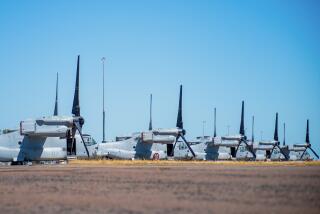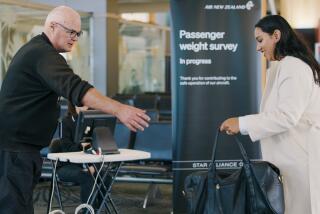New Zealand Air Force Evacuates 4 Ailing Americans From Antarctica
- Share via
WELLINGTON, New Zealand — A New Zealand air force plane took off safely from an ice runway at a U.S. research station in Antarctica today, carrying out a risky mission to rescue four ailing Americans.
The C-130 Hercules left the Pegasus airfield at McMurdo Station just an hour after landing to retrieve the sick staff members and seven other Americans, officials said.
“Right now, the count is 11 people coming out, for various reasons,” said John Sherve, the New Zealand manager for the group’s employer, U.S.-based Raytheon Polar Services. “The primary purpose of the mission is emergency medical evacuation of one employee.”
Sherve declined to comment on the patients’ conditions, but New Zealand air force sources said one man had a serious heart condition. A medical staff of five, including an anesthetist, was on the mass evacuation mission, which Sherve called “unprecedented.”
The plane took off from Christchurch in southern New Zealand and arrived at McMurdo eight hours later. Its engines were kept running throughout the stopover and refueling to prevent them from freezing at McMurdo, where the temperature was 22 degrees below zero.
With few clouds and no wind, weather conditions were near ideal for the mission.
The McMurdo airlift came hours after blowing snow, high winds and low visibility prevented another emergency airlift from taking off for the South Pole--800 miles from McMurdo--where a sick American doctor is also waiting for a flight out for urgent treatment.
Ronald S. Shemenski, 59, is the only physician among 50 researchers at the Amundsen Scott-South Pole station. He recently suffered a gall bladder attack and has been diagnosed with pancreatitis, a potentially life-threatening condition.
A twin-engine plane fitted with skis is scheduled to fly as early as Wednesday from the Rothera research station on the antarctic peninsula to pick up Shemenski.
More to Read
Sign up for Essential California
The most important California stories and recommendations in your inbox every morning.
You may occasionally receive promotional content from the Los Angeles Times.










